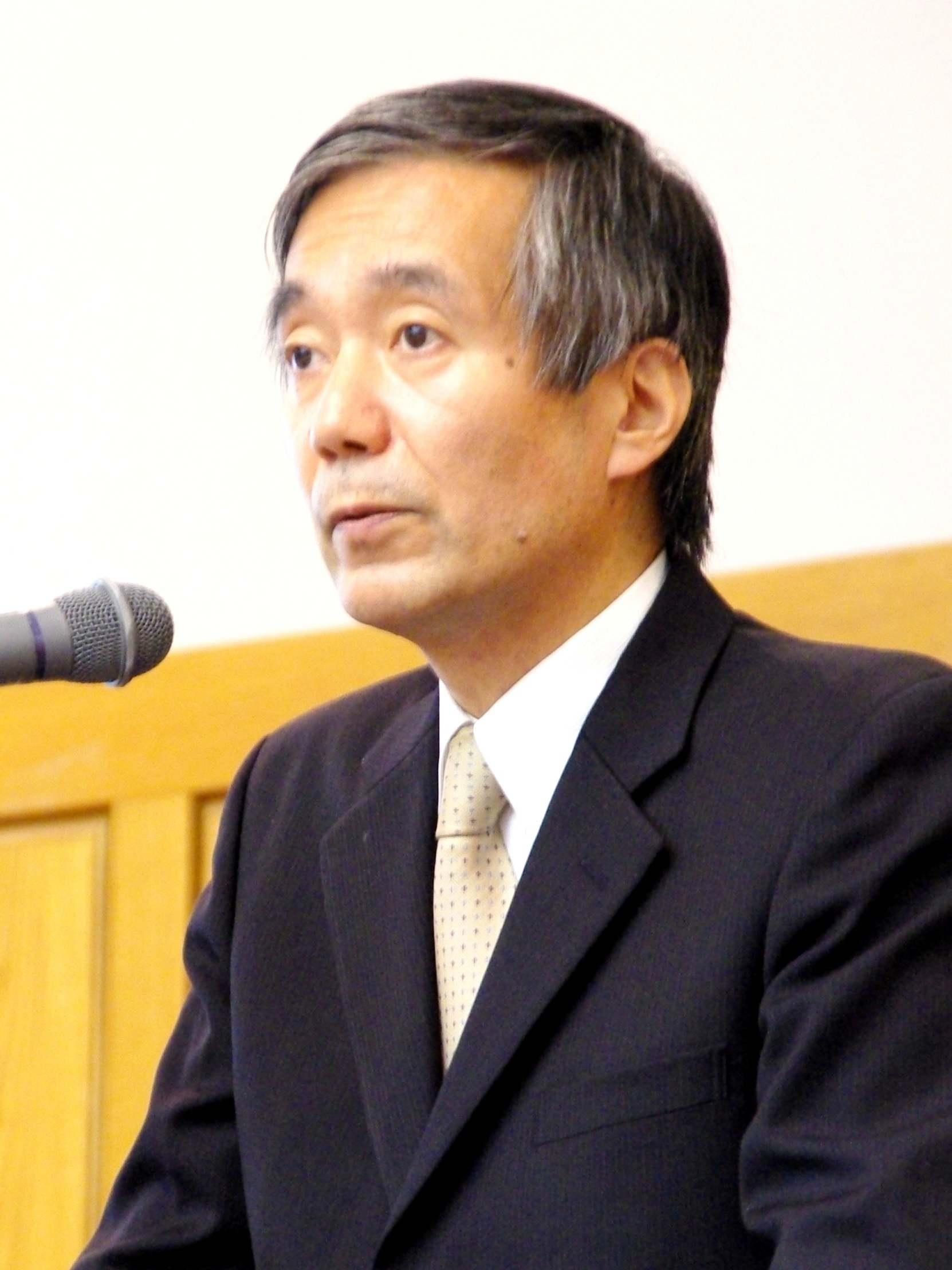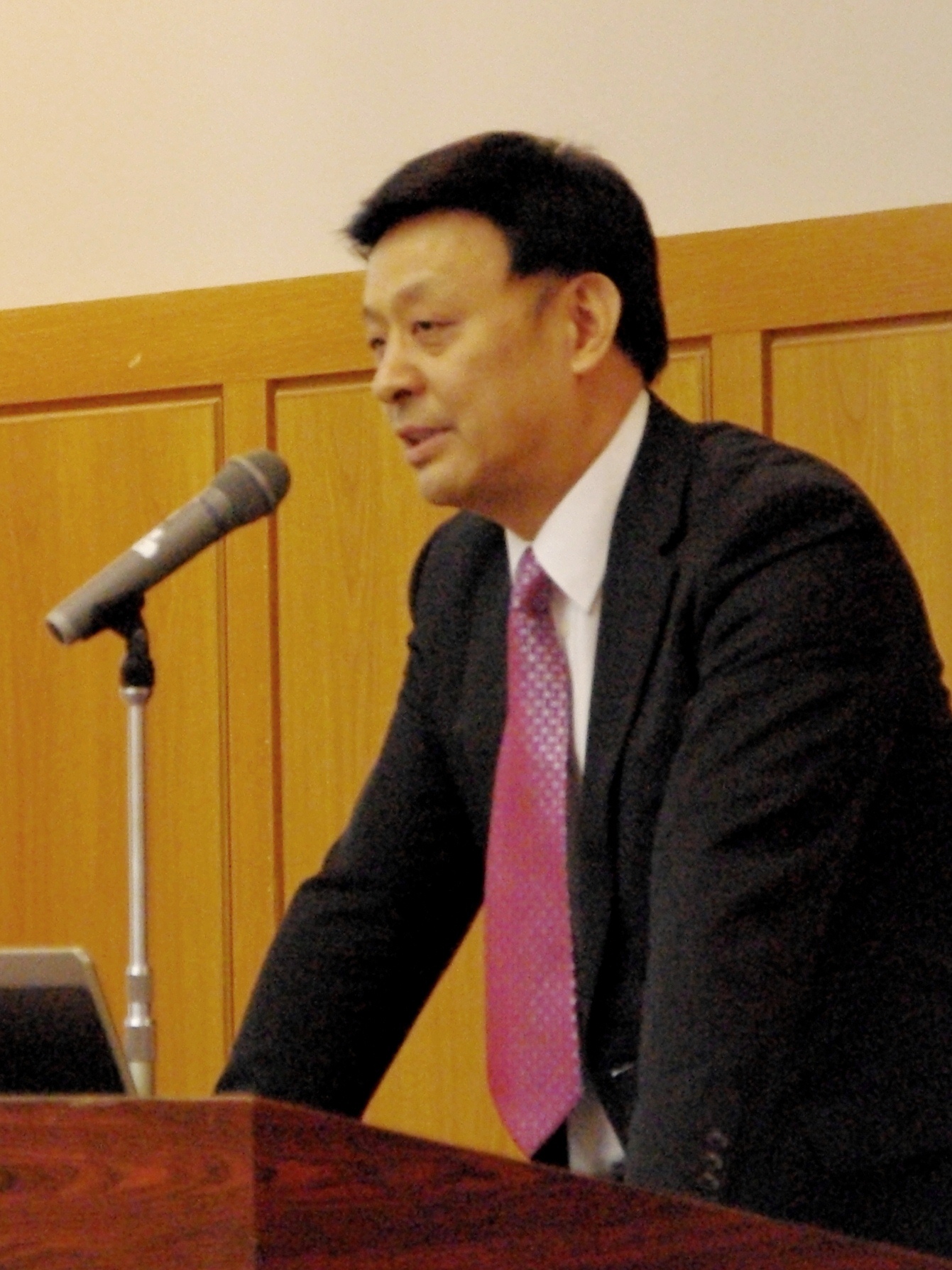JICA-RI Holds a Public Seminar on the Determinants of the Behavioral Patterns of China's Local Governments
2013.12.19
China has been achieving long-term rapid growth since its announcement of the reform and open-door policy at the 3rd Plenary Session of the 11th Central Committee of the Communist Party (CPCCC) in 1978. The competition among local governments attributed to the rapid economic growth in China, whereas the various institutional systems that have urged local governments to compete brought about critical issues such as excessive consumption of resources and rapid urbanization.
On December 12, JICA-RI invited Dr. Lin Jiabin, Director-General of the Department of Social Development Research at the Development Research Center of the State Council (DRC), one of China’s leading think-tanks, as a guest speaker. He gave a speech on institutional factors that regulate the behavioral patterns of China’s local governments

Kitano Duputy Director
Prior to Dr. Lin’s speech, JICA-RI Deputy Director Naohiro Kitano gave an opening address. He stated that the decision of the 18th CPCCC in November 2013 drew attention in Japan; he also mentioned that the agenda on how to advance governance in China can provide a good suggestion for not only developing countries but Japan that strives to further its decentralization.
Dr. Lin mentioned five determinants in his speech: (1) the performance evaluation of local governments’ executives; (2) the fiscal and tax regimes; (3) the land system; (4) the planning system; and (5) central-local intergovernmental relations, explaining what impacts each determinant has on the behavioral patterns of local governments. First he pointed out that the past performance evaluation of local governments’ executives tends to be heavily based on economic indicators such as GDP growth rate, investment amount or tax revenue which resulted in extreme competition to attract capital and excessive concentration in cities.
Secondly, he elucidated the current situation that local governments are compelled to put undue effort into the attraction of investments and land acquisition and sales, since major revenue sources come from corporate tax revenues and land sales profits.
Thirdly, he explained that the current land system accelerates land acquisition by local governments because the system requires them to purchase agricultural land before the land conversion. He also indicated that supervision and restriction didn’t function under the past system, but rather worked as a means to justify the abuse of power, although the planning system exists primarily for the purpose of preventing unrestricted changes and power abuse in association with a personnel relocation of the local governments. Dr. Lin lastly stated that resource is concentrated on central governments and administratively top-level cities, which entails an excessive concentration of functions in large cities.

Dr.Lin's speech
In order to respond to the situations, he outlined a variety of reforms that were decided on at the 18th CPCCC this November.
In a Q and A session that followed, the audience asked a broad range of questions such as reactions of the Chinese general public to the decision of the 18th CPCCC and its implementation as well as monitoring methods.
Lin Jiabin
Director of the Department of Social Development Research, Development Research Center of the State Council of China
※Japanese only

事業事前評価表(地球規模課題対応国際科学技術協力(SATREPS)).国際協力機構 地球環境部 . 防災第一チーム. 1.案件名.国 名: フィリピン共和国.

事業事前評価表(地球規模課題対応国際科学技術協力(SATREPS)).国際協力機構 地球環境部 . 防災第一チーム. 1.案件名.国 名: フィリピン共和国.

事業事前評価表(地球規模課題対応国際科学技術協力(SATREPS)).国際協力機構 地球環境部 . 防災第一チーム. 1.案件名.国 名: フィリピン共和国.

事業事前評価表(地球規模課題対応国際科学技術協力(SATREPS)).国際協力機構 地球環境部 . 防災第一チーム. 1.案件名.国 名: フィリピン共和国.

事業事前評価表(地球規模課題対応国際科学技術協力(SATREPS)).国際協力機構 地球環境部 . 防災第一チーム. 1.案件名.国 名: フィリピン共和国.
scroll